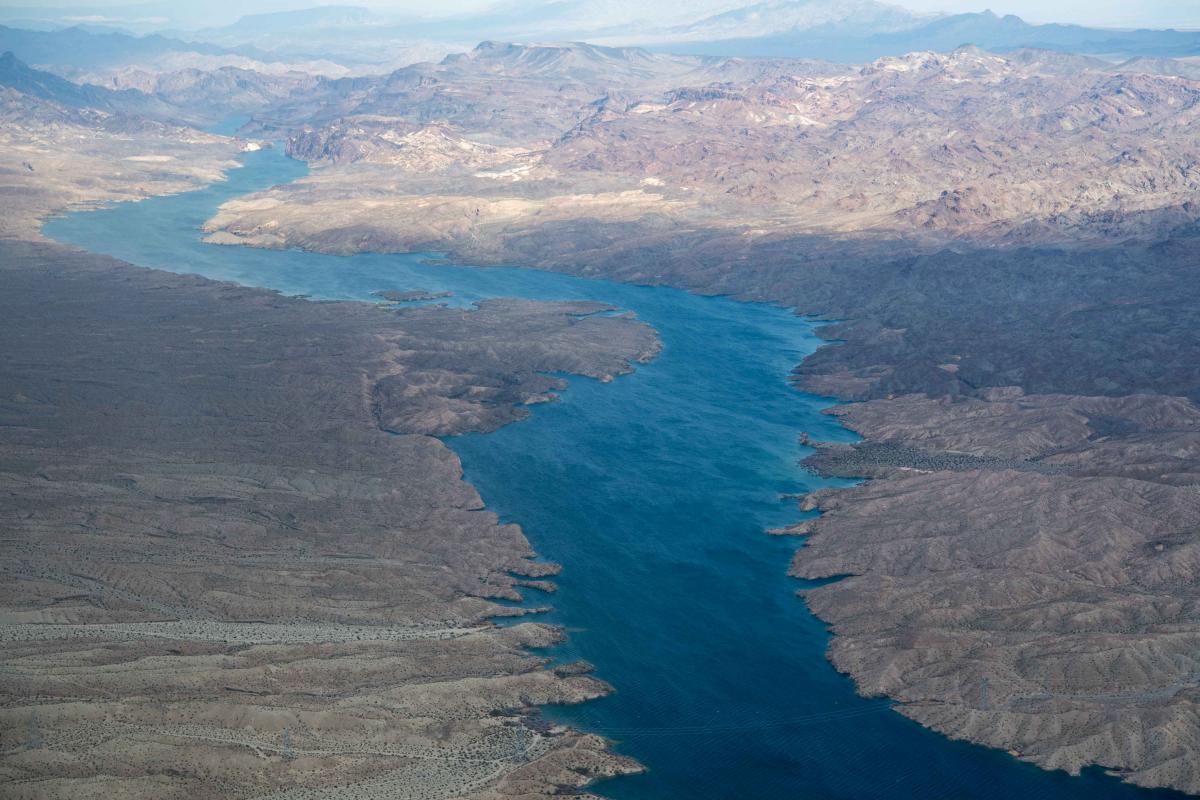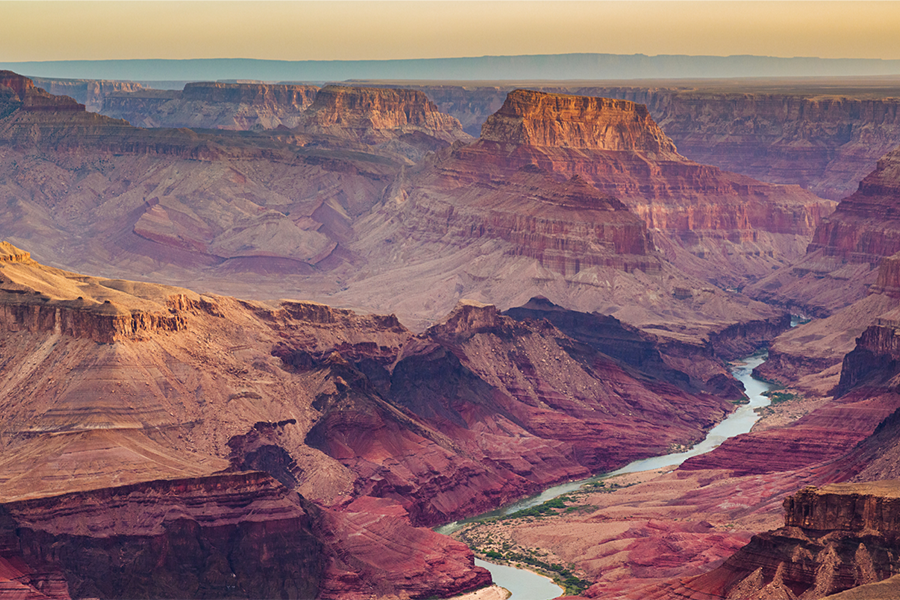8 rows Although the Colorado Ute Tribes originally settled their water rights claims in the. With the oldest water rights in the basin the tribes are in a position to play a significant role in balancing water demand and supply and otherwise shaping.

With Water Leasing Vote Colorado River Indian Tribes Will Seek Consequential Legal Change Circle Of Blue
California 1963 established water use rights of the Colorado River for CRIT as well as the Cocopah Indian Tribe Chemehuevi Tribe Fort Mojave Indian Reservation and Fort Yuma Indian Reservation.

. This figure is equivalent to nearly 26 of the mean annual flows of 1244 maf at Lees Ferry from 2000-2018 and nearly 22 of the mean annual flows of 1476 maf at Lees Ferry from 1906-2018. This water is for use on the Colorado River Indian Reservation primarily in Arizona. Central Arizona Project Governing Board Supports Landmark Federal Legislation That Allows The Colorado River Indian Tribes To Lease Its Colorado River Water And Provide Drought Relief For Arizona PHOENIX By a unanimous vote the Central Arizona Project Governing Board has endorsed The Colorado River Indian Tribes CRIT Water Resiliency Act of 2021S3308.
Ute Indian Tribe Ute Mountain Ute Tribe Southern Ute Indian Tribe Jicarilla Apache Nation Navajo Nation Chemehuevi Indian Tribe Colorado. Pursuant to Arizona v. Roughly 20 percent or 36 billion cubic meters 29 million acre-feet which is more water than Arizonas total allocation from the river.
Tribes with reservations in the Colorado River Basin have quantified rights to divert about 20 percent of the Basins annual average water supply based on an annual flow of 14 million acre-feet according to the Colorado River Research Group. Reclamations 2007 Interim Guidelines were based on an understanding of non-tribal water even though tribes control 20 percent of the water rights from the Colorado River. While the Court used the practicably irrigable acreage standard to quantify these rights it made clear that the tribes are free to use the water on reservation for whatever uses they determine.
California culminating with the most recent Consolidated Decree 547 US. The Colorado River Indian Tribes have Colorado River water rights decreed by the United States Supreme Court in the series of cases known as Arizona v. As a result on-river tribes have difficulty participating in programs established by the Guidelines.
Settlements are now the favored option for sorting out water rights but it was not always the case. 3308 legislation that would empower the colorado river indian tribes crit to lease a portion of its colorado river allocation to arizona communities and reinvest portions of that revenue into making their water. There are an estimated 4000 persons constituting the four tribes of CRIT.
American Indian tribes have rights to a significant share of this water in some states. CRIT holds the largest first priority water rights in Arizona for the use of Colorado River water. And now they want to lease some of it to others water theyve saved through conservation in the way they farm their land and have for millennia.
CRIT possesses present perfected federal Indian reserved water rights from the Colorado River mainstem pursuant to the decree in Arizona v. A map of the Colorado River Basin Grist Amelia Bates Indigenous nations have recognized rights to more than one-fifth of the basins annual supply more than a trillion gallons or nearly enough. Some tribal rights are still awaiting settlement.
CRIT has the ability to assist Arizona because of its hard fought water rights to Colorado River water and its ability to fallow farm land when needed. The member tribes are. 50000 acre feet of water is enough water to supply 100000 households for one year.
Thirteen of the 29 tribes in the Colorado River Basin have claims to water that are not fully quantified including the Navajo Nation which has the largest outstanding claims. This tribal nation is the largest single user of Colorado River water in Arizona with rights to divert about 662000 acre-feet per year more than double the. 16 hours agoTheres an assumption that the seven Colorado River Basin states and the federal government are going to speak and protect and.
That 20 percent is a significant amount of water compared to what everybody else has Cloud said. 150 2006 commonly referred to as the 2006 Consolidated Decree. Senators mark kelly and kyrsten sinema introduced the colorado river indian tribe water resiliency act s.
2As detailed below in Tables 1 and 2 Colorado River Basin tribes currently hold water rights to 3206088 acre-feet of Colorado River system water annually. Combined the tribes hold rights to a substantial portion of the Colorado Rivers flow. The Colorado River Basin Tribes Partnership also known as the Ten Tribes Partnership is an organization formed in 1992 by 10 federally recognized tribes with reserved water rights in the Colorado River Basin.
The Colorado River Indian Tribes have senior rights to a sizable portion of the Colorados water. Combined the tribes hold rights to roughly 20 percent or 29 million-acre feet of the water in the Colorado River basin. Canals and aqueducts deliver most of Californias allocation to agricultural and urban export areas outside the river basin.
These tribes hold legal rights to a significant amount of water many of which are the most senior in the basin. The amounts priority dates and states where the reserved water rights are perfected are presented in Table 58-A.

Crwua Colorado River Water Users Association

In Drying Colorado River Basin Indian Tribes Are Water Dealmakers Circle Of Blue

Interactive Map Indian Water Rights In The Colorado River Basin Circle Of Blue

In Drying Colorado River Basin Indian Tribes Are Water Dealmakers Circle Of Blue
Tribal Water And The Colorado River Thoughts On The Recent Crwua Meeting Jfleck At Inkstain

Colorado River Indian Tribes Crit System Conservation Project Business For Water Stewardship
Colorado River Indian Tribes Tribal Water Uses In The Colorado River Basin

As Shortages Loom In The Colorado River Basin Indian Tribes Seek To Secure Their Water Rights Water Education Foundation

As Shortages Loom In The Colorado River Basin Indian Tribes Seek To Secure Their Water Rights Water Education Foundation
